Subscribe to MacroMashup News
Summary & Key Takeaways
- From Insider to Independent: Phil Rosen left Business Insider to co-found Opening Bell Daily, driven by a desire for direct audience engagement and media ownership [00:10:00] to [00:11:15]
- Power of Fiction: Phil emphasizes how writing fiction has improved his journalistic craft, enhancing storytelling and clarity in financial reporting [00:04:00] to [00:07:10]
- Narratives vs Data: He warns against blindly following market narratives and highlights the importance of using raw data to challenge consensus [00:12:00] to [00:15:15]
- Bitcoin vs Fiat: Phil outlines why Bitcoin has outperformed traditional assets, especially in light of global debt and fiat currency debasement [00:20:55] to [00:23:55]
- Cultural Perspective: His experiences living and working in Hong Kong shaped his views on media, independence, and adaptability [00:07:10] to [00:09:50]
- Signal vs Noise: Phil advocates thinking like an investor—filtering out media noise to focus on what markets are actually pricing in [00:16:00] to [00:19:10]
- Global Relevance of Bitcoin: Highlights how Bitcoin offers sovereign financial freedom, especially critical in unstable economies [00:23:55] to [00:25:25]
Transcript
[00:00:00] It's very hard in the press to not fall into what everyone else is saying, and sometimes everyone else is right, of course. So it's not that everyone's wrong if there's only one narrative. Sometimes that's just the obvious thing, and it's true. But in other cases it's not so obvious that the consensus.
Is the right thing to believe or say, but if you look at Bitcoin and strip away all the ideas and narratives around it, and just look at the returns, right? It's been the fastest horse for years. I think it's up a thousand percent in five years, something like that. Welcome to the Macro Mashup Podcast. I'm your host, Neil Winward.
This podcast is sponsored by Dakota Ridge Capital. Your energy investments partner helping developers partner with family offices, banks, corporations to make smart clean energy deals and maximize government tax incentives.
I'm joined today on macro [00:01:00] mashup by Phil Rosen. Phil is a, an award-winning reporter with over 2000 bylines and two bestselling books before the age of 25. He left Business Insider. To found the opening Bell Daily, a daily newsletter that hits inboxes on on a regular basis, on a daily basis on LinkedIn.
And that newsletter was founded with Anthony Pompano. And Phil is is taking a big, has taken a big. Entrepreneurial risk in starting that newsletter. His his view is that actually it's it's no riskier to take that kind of an entrepreneurial step than it is to stay as an employee in the traditional media that is becoming increasingly fragmented.
And that is under all sorts of financial pressures. Phil's whole sort of belief set is, is informed by his his view that it's [00:02:00] important to engage on a regular basis with your subscribers. He does that, I can attest to that, and does a great job of engaging with all the commentary that people leave on his on his daily offerings, he sees newsletters as the.
Ideal platform for building a sustainable, scalable media business and owning the audience relationship. He plans to expand the opening bell daily into audio, video, and long form content to deepen engagement. And he advocates for a length less daily writing as the foundation for. And career growth.
He advocates, as you'll see on this podcast, not only for financial journalism, but also for the importance of reading and occasionally writing fiction. To stay up to date sharp and hone your writing skills. So his focus on what he emphasizes is the importance of curiosity, [00:03:00] adaptability, and direct audience interaction.
So with that let's dive into this this episode of Macro Mia with Phil Rosen.
There we go. Okay, bill Rosen, welcome to the Macro Mashup podcast. Thanks for agreeing to do this. Thank you, Neil, for having me. Great to be here. I know you do a lot of these podcasts. I've been through a few of them, so I know you're a pro at this, and I know since we have.
A bit of a time crunchy. I'm gonna put all of your bio data and your origin story in the show notes, and we'll just, if you're good, we'll just get right into it. Let's do it. Cool. So I want to begin a little bit differently. I have a nice quote to present to you and see how you react to this.
It's a really nice quote, actually, I love this sentence. Okay. And the quote is, A man so thoroughly saturated in unfortunate happenings that he had ceased trying to hide [00:04:00] it from his countenance. Now, I'm guessing you might recognize that line. it looks like we're diving into some old writings.
Writing stays with you, right? I bet sometimes you go back and have a look at it and you think actually that's pretty good, but this is a really good one. So you wanna just tell us where it came from and give us a little context. Yeah. Neil, you've obviously done your research here.
That is from my. Fiction book from a few years ago called Life Between Moments, and it's a collection of short stories that I published. Yeah, they're all stories that are in and around New York and nothing to do with financial markets or economic data. And I wrote that book in my first year living in New York.
And what it was really was an outlet that was not. Anything to do with my reporting, so my day to day reporting on finance. That book is obviously nothing to do with this. And it was a creative outlet that apparently people still read. So [00:05:00] that's a Yeah, no's. It's why you promoted it on LinkedIn recently, so I thought I'd take a look and I actually gave it to one of my kids
I said, Hey, just. Read a couple of these stories, tell what you think. And so he read them. We were on a flight back from Canada, he said, actually, it's pretty cool then. So kudos, kudos to you. Are you by any chance a fan of Dickens? I wouldn't say I've read him since probably high school but I know, he is a legend for a reason.
Yeah. No, I mean it's the quote really re that sentence really reminded me of the way. Dickens describes his his characters. It's rich in detail, and that one really evoked an image to me, which I think was you on a ferry boat, right? And you came across this guy who was a pretty sad looking individual and had a conversation with him that you jumped into and wondered whether you should or not, but.
No, it's great. So let me just ask you this question. You do this excellent daily letter called the opening bell daily. And so that's your standard sort of [00:06:00] daily fodder and it's clearly, it's writing based on the events in the market. You write fiction as well, obviously a lot less than you write daily market commentary.
You think it's important for a a financial journalist to read and maybe even write fiction? I don't know if it's important, but I do it because it's interesting to me. So I read a lot of fiction. I haven't written fiction in, geez, probably at least two, three years whenever the book came out.
But I think it made me a better writer. So if I want to be the best financial writer, I think I should be able to have a pretty wide array of tools to do that. And fiction is one of those tools and the literary devices that you use in fiction are actually pretty useful when you're a reporter.
So I think I learned a lot in that process and I probably carry some of those lessons with me in my financial reporting. So anything I see, anything that is a net positive as far as new skills [00:07:00] that is useful in some way to financial reporting or probably any job that you're doing.
Yeah, no, it's a craft and I think your message is really, if your craft is financial journalism, then. It can help you to hone your craft if you read some and maybe even occasionally write some fiction. 'cause it's definitely a different experience. I agree with that. So it's I think you have an interesting bio.
I'm gonna get into a little bit of that. But you were born here in the us and your mother was born, I think in Hong Kong, right? And you went back there. As an adult. So tell us why you did that and how long you spent there and what you think you got from that experience. I wanted to live overseas after college, so I moved to Hong Kong and what I did there, I was teaching English first, so I was teaching English to kids and starting this blog.
So I started travel blog and then that travel blog. Was what earned me my first job at a [00:08:00] newspaper in Hong Kong. So I worked at an English paper as a features writer and editor. And I had no journalism background, no reporting experience, but that blog the portfolio I had built independently online was essentially what got me that job.
And after that. Experience. I came back to the States to go to graduate school for journalism and then from there I went to Business Insider where I was there for almost three years before starting opening Bell Daily, a little over a year ago. What did you think of Hong Kong? How long were you there?
Just to remind me. It was under two years. Yeah, under two years. So between one and two and I had a great time. I have a lot of relatives there and it's certainly a place that. Is as fast and dynamic as Manhattan, I would say, as living in New York. But everything unfolds and takes place in Chinese of course.
It's there's that, I can speak Cantonese, but there is still a language barrier 'cause obviously it's not my, I. I'm not as good in Cantonese as I am in English, let's say. So every single day-to-day interaction [00:09:00] is that much more difficult. And for me, I had to think so much harder about going to the grocery store or, getting day-to-day errands done.
I. There's just such a baked in difficulty to things, and even though I could speak pretty well, it's still not like a native fluency. Did you start thinking in Chinese? Sometimes I think depends on the topic, but every now and then it would happen. But I grew up speaking Chinese with my family it's not that it was a.
Immediate foreign experience. 'cause I had traveled to Hong Kong growing up all the time, but then living there was a totally different, opening a bank account in Hong Kong and getting a job in Hong Kong and doing all those things. It's just a different experience than just traveling there as a visitor.
No, I think. Speaking and thinking in a foreign language is really a mind-bending experience. For sure. And it's definitely I think there's definitely things that are uniquely expressed in a [00:10:00] foreign language that. Are differently expressed with the translating words in, in a different language.
So you made a fairly bold entrepreneurial decision to leave Business Insider and set up opening Bell Daily.
I didn't realize that. I know you quote Anthony Pom Pompano a lot in your daily letter, but I didn't actually know that you'd set up that business with him. How did that come about? Yeah, so we are co-founders in the business, partners in the business, and we met at a conference in 2023 and we decided that our vision aligned on what we wanted to build as a financial media independent shop, let's say, and something to disrupt.
The incumbent financial media players and it just made sense. So we teamed up and launched this and so far we've had a lot of fun doing it and I've certainly learned a lot. I think we've both learned a lot in the process building out this business and really the goal every day really is to inform and share a viewpoint [00:11:00] on financial markets that's rooted in data and historical trends
The views of very smart people that I interview. And I think so far readers seem to have taken to it and I certainly have a great time every day writing the newsletter and speaking with people who are way smarter than I am about markets. And I think we're just getting started a year in, and I really think this is still early days.
Does Anthony still actively participate on a day-to-day basis? Yeah. Oh yeah. We're in it every day together and, we have a great time building this company. Great. No, it's a great tool. I always look forward to seeing it in my inbox. First thing in the morning, it's a great take on the market.
And so one of the themes that I get from your. Daily writing is what you might call the anti narrative, right? We're surrounded by narratives. You see it because you consume, I'm sure a ton of financial press and podcasts and newsletters.
So you see that [00:12:00] people love narratives. I think they love narratives because maybe stories are easier for us humans to pass than data. Data is it is what it is and it yields what we tease out of it, but it doesn't yield a result as easily as a story.
And so people love stories. And one of the things that you constantly mention is, Hey this may be a. Narrative busting day. Yesterday, for example, when the CPI data came out and it was lower than expected, and so there went the narrative about whether tariffs and inflation were linked hand in hand.
So tell us how you think about narratives and how you try to make sure that you are not being overly steered by them. That's a great question. And certainly I'm in the business of narratives as a journalist, but I try to do my best to inform my views with stats and data as you mentioned.
And it's very hard in the press to [00:13:00] not fall into what everyone else is saying, and sometimes everyone else is right. So it's not that everyone's wrong if there's only one narrative. Sometimes that's just the obvious thing and it's true. But in other cases it's not so obvious that the consensus is the right thing to believe or say.
And what we've seen for recent months, if we use the example of inflation, the second these tariffs started to roll out, and Trump has been talking about them for a long time, Economists consensus views from various banks said these are inflationary policy measures. However, in the data so far, we have not seen that to be the case.
Inflation has come in lower than expected every single month this year, and no one really knows how to really parse through that because it is breaking the narrative of tariffs equal inflation. And it's very possible that maybe down the line we start to [00:14:00] see that emerge, but it isn't yet obvious in the data.
So what I try to write about is, okay, what's right in front of us and what is the data actually saying? And so far it's not confirming the narrative that tariffs are inflationary. And that is not to say that it's impossible for them to be inflationary in the future, but in this moment we are not seeing that in the data.
if you look at the CPI numbers every single month, it's come in cooler than expected. So the conclusion to me seems clear at this moment in time, but I will say things are about to get a lot more complicated. Is what I anticipate because I do think inflation I think there's a strong chance that inflation does start to creep higher.
Through the rest of the year. And I don't know if that's necessarily gonna be because of tariffs, but I do think that the government will ramp up spending through the year and we're probably gonna see some degree of money printing and we'll get inflation coming [00:15:00] back. But that doesn't mean it confirms the tariffs equal inflation narrative.
I think there are a lot of factors at play, and it's not so black and white as let's say. The rest of the financial press is making it out to be. there was a great article yesterday I saw in the the Wall Street Journal. Immediately the CPI data came out. There was an article saying, economists question the quality of government data.
And I was like, perfect. This is how people start walking back the narratives. They say, oh. Certain people within the government have said how the department's under stress. They're understaffed, they're making adjustments that haven't been customary, so the data is not to be believed, and the next step, they don't say that is, believe us economists, we're not wrong.
And so I think that's fascinating because if people don't like the data, they torture it until they get the answers that they want. Immediately the CPI data comes out, or the PPI people start pulling it apart and saying it says this. It appears to say that. [00:16:00] But if you start pulling it apart what it really says is this.
And at that point people are like, oh, I guess I can't rely on the data at all because I just don't know enough to be able to reach a conclusion absent the different layers of detail that these guys, spinning tours on Bloomberg and or whichever financial news channel you watch every day.
So that, that's really interesting to me. let's look at the data, see what the data's selling is, and let's act based on that. Everybody's selling a story. Everybody's selling, whatever it is that they're selling, but they're selling something and so they will torture data until they get the answer that they want.
Moving on a little bit. And I think it's the next obvious step is separating signal from noise. That's another theme I hear a lot. I use it myself in the newsletter that I write. And it is really hard to do that because there's so much noise out there.
How do you try and filter signal from noise? I think one really simple way [00:17:00] is to think like an investor, right? So investors ultimately are responsible for their plus minus on their portfolios. So they can't really afford to think about headlines and narratives. They have to think about the data and what's actually happening and what the portfolio results will be.
So I think something that. Is a structural reality of writing a market's newsletter is that I focus on the market of course. So I look at how investors are responding to news and headlines and narratives. So we have seen that the market right now is very optimistic. The market is pretty much wiped out or reversed all of its losses since Liberation Day, and we're within a point or two from all time highs.
So the market. Forward-looking mechanism, very optimistic about what's coming and what's happening right now. Investors do not think that's the case if you go by the stock market.
That's one way to separate [00:18:00] signal from noise. I would say most things on social media and the media in general is noise, but then the signal, you can look at how traders are responding to things and how markets are pricing certain events and activities. So that's probably the simplest way to explain it.
But really I try to look for gaps or divergences between what people are saying and what they're doing. So that, again, comes back to the market. How are people putting their cash to work versus what are they saying in the media or news headlines? I love charts.
I'm sure that you look at a lot of those too, and I love, for example, charts on gold and, real. Interest rates and looking at the divergence of that versus historical norms, that's really important. I think historic correlation breaks are fascinating to watch and draw conclusions from.
And that's really passing the data, right? I think there's a very strong. [00:19:00] Tendency in the media for us to fasten onto the commentary of one individual who happens to be featured that day writing an article or in an interview, and they're like I've done a study I've reviewed a study, I've reviewed all sorts of data.
I've written a book, I've written an article, I've written a paper, and I've come to the conclusion that. The market is essentially a vast crowd of knuckle dragging morons, and my view is that this is what's really going on.
It's the collective wisdom of millions and millions of people who, as you said just now, are investors making decisions with their own money. So I'm much more inclined, I think, to see if there's a way to get to the wisdom that collection of decisions, which is really what the market is showing us then to pick on someone who happened to send smart on a particular day.
So it's really a fascinating exercise to pass that. And I think. The ING Bell daily [00:20:00] is a good sort of guide to start the day with without any preconceived ideas or at least to say these are the preconceived ideas. This is what the data is showing us.
And he, here's what to expect. So I'm really interested about, your collaboration with Anthony because the focus that he has on Bitcoin. Is fascinating. I had dinner with a friend recently and they were talking about market allocations and he said so how much Bitcoin do you have?
And I said I have a 10% allocation. He's are you crazy? And it's so that's a reaction, which is not uncommon. What's your thought on, on, on Bitcoin? So if you look at Bitcoin and strip away all the ideas and narratives around it, and just look at the returns right? It is been the fastest horse for years. I think it's up a thousand percent in five years, something like that. And there are very [00:21:00] few, let's say, public equities that have kept up with that rate of return.
And then if you start to look at. Other structural factors at play. The US has added, what, 12 trillion in debt in the last five years since the pandemic. So that's very unsustainable and that's gonna dease the dollar. So we know that the dollar has lost. A ton of purchasing power in the last five years, but also in the last century, it's lost something like 90% of its purchasing power.
And Bitcoin, on the other hand, is moving in the opposite direction, and it's appreciating, so the US dollar is depreciating just like every other currency in the world, and Bitcoin is appreciating. The analogy I always like. And I won't get the numbers exactly right, but if we ballpark, let's say 20 years ago you could buy a home for $500,000.
And today that same home is $5 million. When the home was $500,000, maybe it cost something like 500,000 [00:22:00] Bitcoin when Bitcoin was just starting out. But now you could buy that same home for a handful of Bitcoin. So you can see that the dollar has lost all its purchasing power and Bitcoin has gained.
And to me, if you look at the debasement of currencies, the unsustainable trajectory of government debt and the limited supply and increasing demand for Bitcoin, and its increasing adoption among Wall Street institutions and mainstream retail investors. I don't know if you have to make the case for it anymore.
I think a few years ago it was much more fringe of an idea, but every single month that goes by the government debt is getting more outta control. The government's gonna keep spending no matter who's in office. Trump had this whole austerity agenda with Elon Musk that was in short order dumped and they're gonna keep spending so.
The US dollar, it's I would say the prospects of it strengthening rather than weakening are very [00:23:00] low. Whereas Bitcoin, it's the opposite, right? So I don't think the case for Bitcoin has become more and more self-evident to whoever's paying attention. Yeah. As Lynn Olin says, nothing stops this train.
Yep. I love that. I didn't realize until recently that was actually a quote from season five of Breaking Bad. Yes. And so I think it's so true, and what you said the over the last century, the dollar has lost over 90% of its value. And obviously that's a inflation is a tool that the government uses to, enable to continue taxation growth in nominal terms.
And with Bitcoin you don't have that opportunity. And it's fascinating if you divide Bitcoin by pretty much any other asset the s and p divided by DXY, the dollar index divided by home prices. It takes a dollar outta the equation. It just shows you the relative strength of Bitcoin to that particular asset.
And that particular chart goes strongly up and to the right with pretty much any [00:24:00] asset class which is facet, gold a little bit to the same extent, but it's not quite such a smooth, upward trajectory. It's really a fascinating insight into. what the currency debasement that we're living with is all about.
And I think the other fascinating point is that here in the US we don't really ever have to embrace the reality. Of what it means to live with a currency or in a monetary system that is far less certain than the dollar. So if, for example, you to pick on one country, let's say you are a refugee froma war torn country, Sudan, Syria, let's say, and you had all of your wealth in a bank account versus having all of your wealth on a.
On a drive and a plus a seed phrase, the idea that you could just simply be a refugee, leave that country, enter another country, start your life anew, and then plug in your wealth. enter the fiat of that particular country [00:25:00] is a remarkable idea. we have the luxury of not having to really worry about that so much with the dollar.
It's quietly being debased, but the certainty and reliability of the dollar as a currency is really very dominant and something that you don't really experience with. any other currency. So I think that's something that gives a different perspective on Bitcoin.
And look, I know that you have a hard stop at 1230, so I'm not gonna drag you into that deadline. But I do want to thank you for coming on the podcast. I think your insights are really sharp. I think the work you do with Anthony in producing opening bell daily is incredibly valuable.
I know you put a ton of work into it in engaging with your subscribers, and I know you value the ability as a different sort of point of contrast to traditional media, the value of having conversations with your subscriber base, which I think this podcast is probably an expression of precisely that strategy bearing fruit.
I hope you'll come on again, we'll have a little longer to chew over some other things, but [00:26:00] thank you for the work you do. Thank you for joining us. Neil, I appreciate your time and I appreciate you having me on.
It's quite an honor and I hope to be on again soon. Great. Thanks Phil. Good to see you. Thank you. Bye-Bye.
.svg)
.svg)
.svg)


.avif)
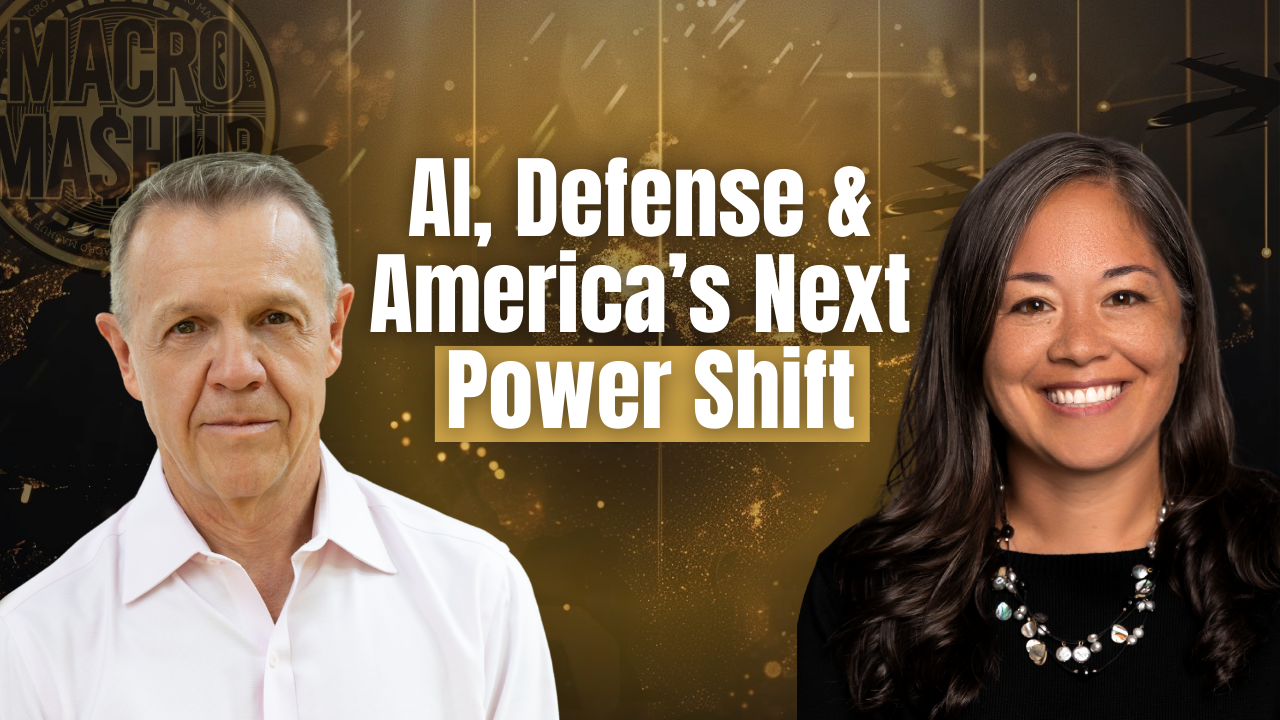
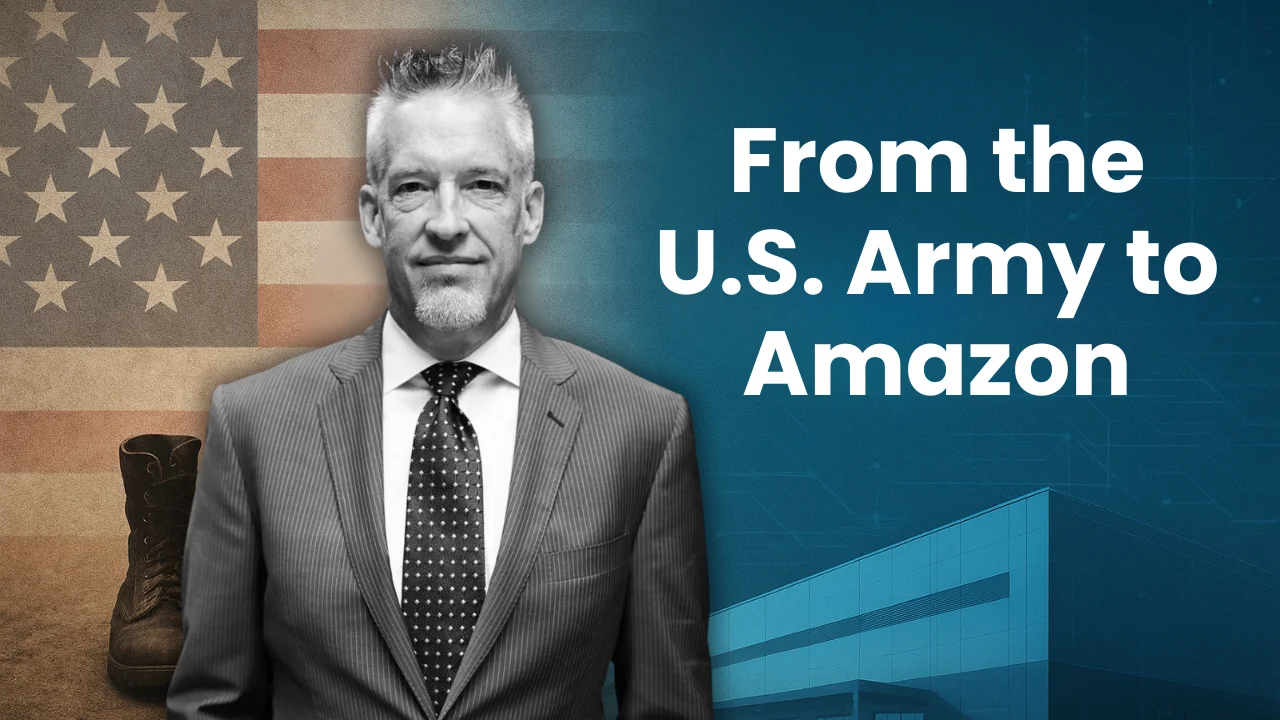
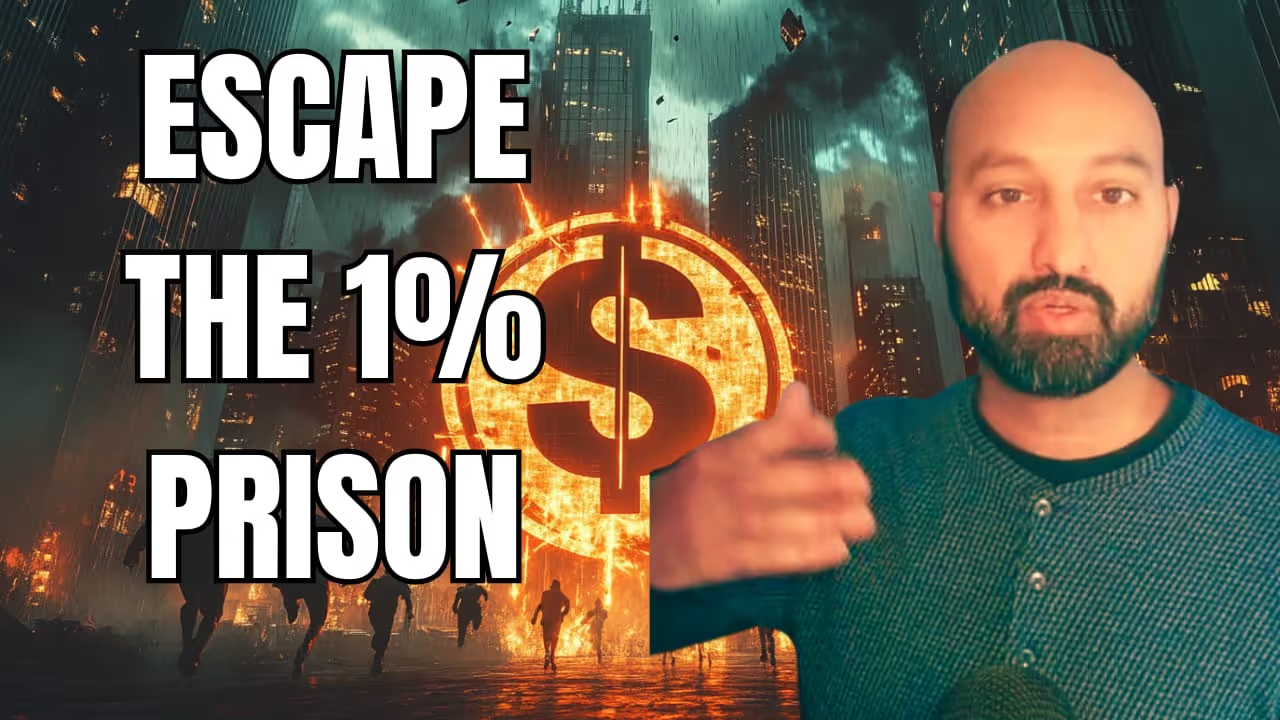

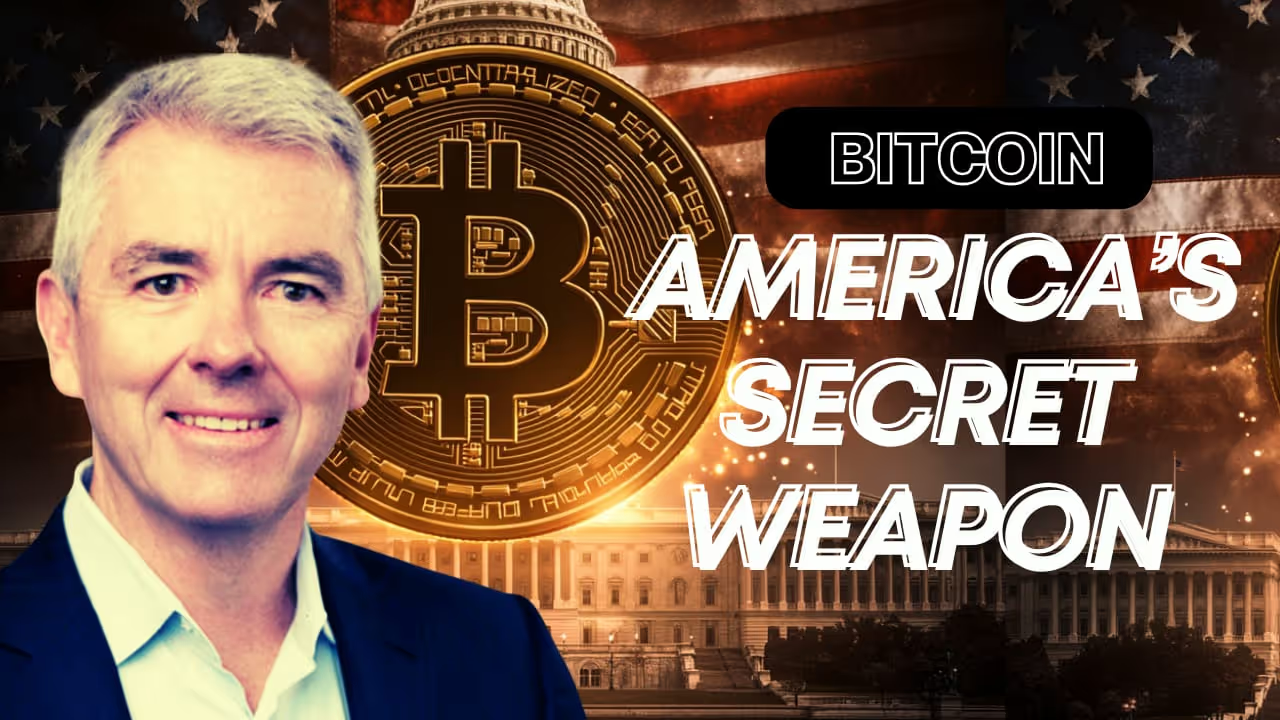
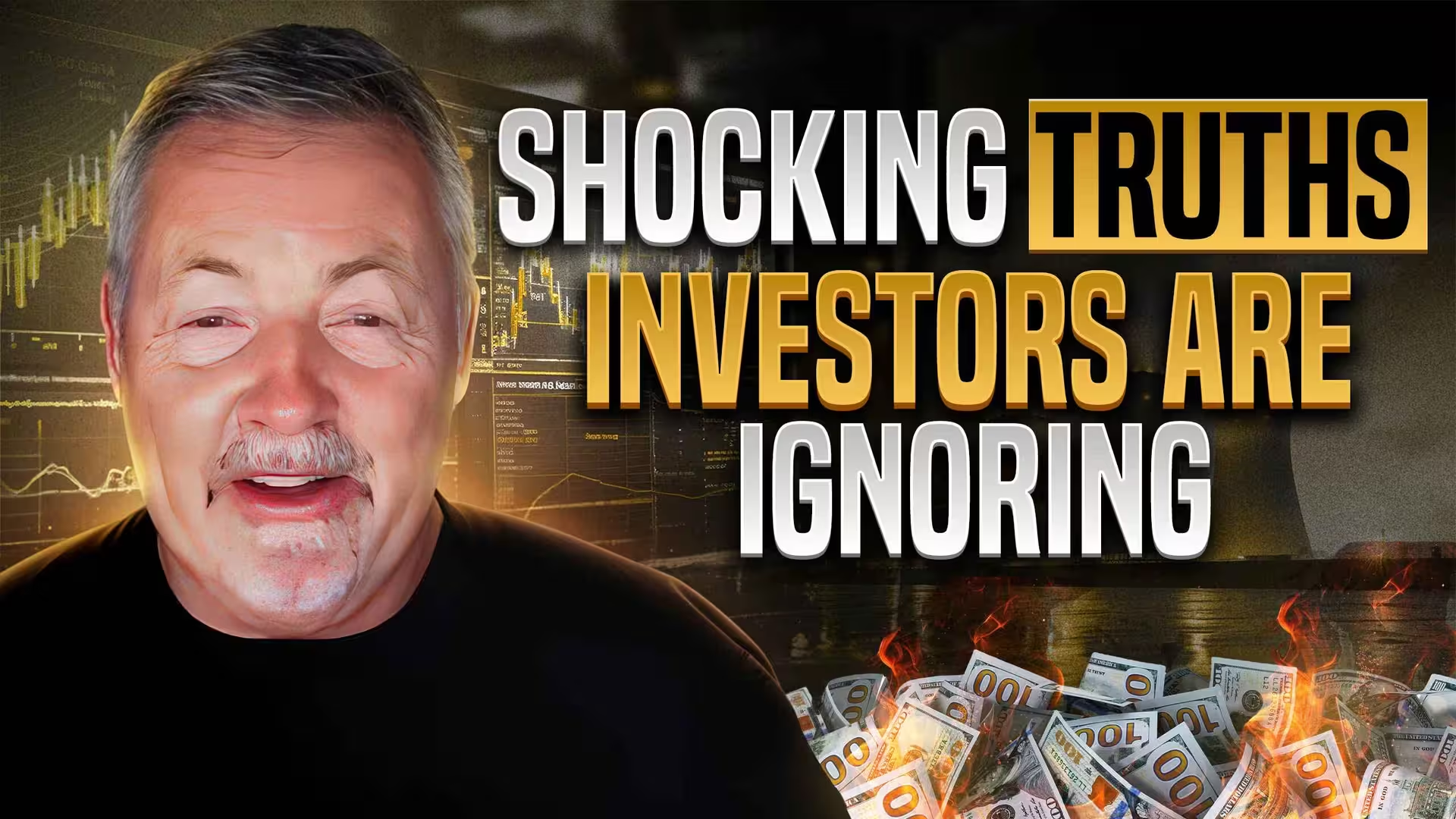
.svg)
.svg)
